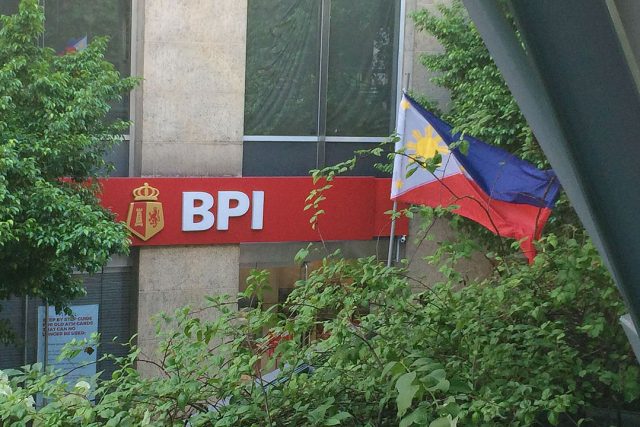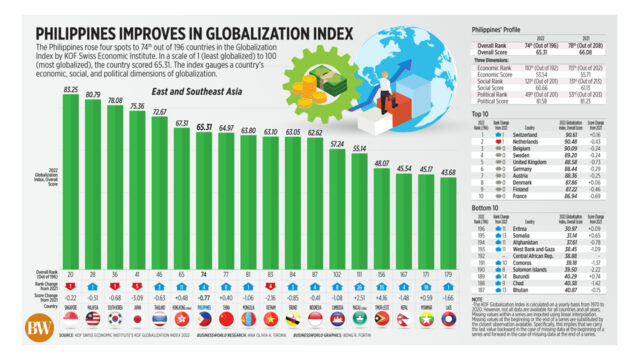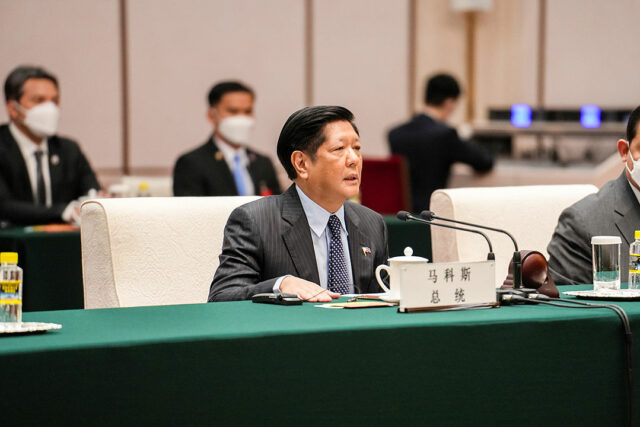BPI working to correct double posting of clients’ transactions
THE BANGKO SENTRAL ng Pilipinas (BSP) is “closely coordinating” with the Bank of the Philippine Islands (BPI) after the listed lender reported an issue that caused the transactions of its accountholders over the long weekend to be debited twice.
“The BSP is closely coordinating with BPI in relation to the double debit transaction incident affecting BPI accountholders. The Bank already identified the root cause of the operational error and committed to reverse the erroneous transactions and restore mobile and internet banking services the soonest possible,” the central bank said in a statement on Wednesday.
“The BSP has instructed BPI to submit a timeline and updates on the reversal of its erroneous transactions,” it added.
BPI, the country’s third-largest bank in terms of assets as of September 2022, on Wednesday said via its social media accounts that some transactions made via its automated teller and cash accept machines, and debit transactions via point-of-sale terminals and e-commerce platforms from Dec. 30-31 were posted twice.
“[P]lease be informed that we expect correction of the duplicate transactions within the day,” BPI said.
The bank said increased inquiries caused intermittent access to its online banking channels.
“Rest assured that your account is safe and secure,” it added.
Complaints from BPI clients accompanied with screenshots of erroneous transactions were posted on various social media sites early on Wednesday.
BPI’s mobile app and website were mostly inaccessible starting 8 AM on Wednesday, with some users able to log into their accounts but still unable to see their account balances as of this writing.
The bank’s shares went up by 30 centavos or 0.31% to end at P98.30 apiece on Wednesday.
FINANCIAL CYBERSPACE ISSUES
Fitch Asia-Pacific Financial Institutions Director Tamma Febrian noted in an e-mail that this is not the first time BPI experienced this issue.
“We heard of the issue and note that this not exactly the first time BPI experienced duplicate transactions issue. In 2017, the bank also suffered from internal data processing error that resulted in some accounts being debited or credited twice when the bank was in the process to upgrade its systems,” Mr. Febrian said.
“It is not exactly clear on whether the existing glitch is caused by a similar reason (i.e. a system upgrade/fix went haywire) as the bank did say that they are still working to investigate and resolve the matter. However, based on BPI’s past experience as well as the experience of a number of banks in the region that suffered similar duplicate payment issues in recent years, these cases can usually be resolved within a reasonable timeframe,” he added.
House Committee on Banks and Financial Intermediaries Vice Chair and Albay Rep. Jose Maria Clemente S. Salceda said in a statement that the incident shows digital finance in the Philippines remains vulnerable to issues.
“The recent incident of double debiting and incorrect entry of balance details in BPI mobile banking accounts shows how prone to widespread glitches our financial cyberspace remains,” Mr. Salceda said.
He said he expects the bank to reimburse any monetary losses customers may incur due to the glitch without any being made to sign waivers or quit claims.
“A resolution of this issue within the day should not preclude the Bangko Sentral ng Pilipinas from investigating the causes or potential weakness of the specific bank or the banking system as a whole,” Mr. Salceda said, adding the committee expects a report from the regulator on the matter.
BPI should also take steps to ensure the incident isn’t repeated, he said.
Bayan Muna Party-list Chairperson Neri J. Colmenares likewise said in a statement that the BSP should look into the incident to ensure the safety of the entire banking system.
“Banks must be held liable and compensate depositors for any damages suffered by account holders due to their inability to access their accounts,” Mr. Colmenares said.
“The BSP should seek an audit of the systems used by banks in the country and set a benchmark for security. As the primary regulatory body, the BSP must put to task financial institutions that fail to pass security standards that put at risk the money of our people,” he added. — Aaron Michael C. Sy















